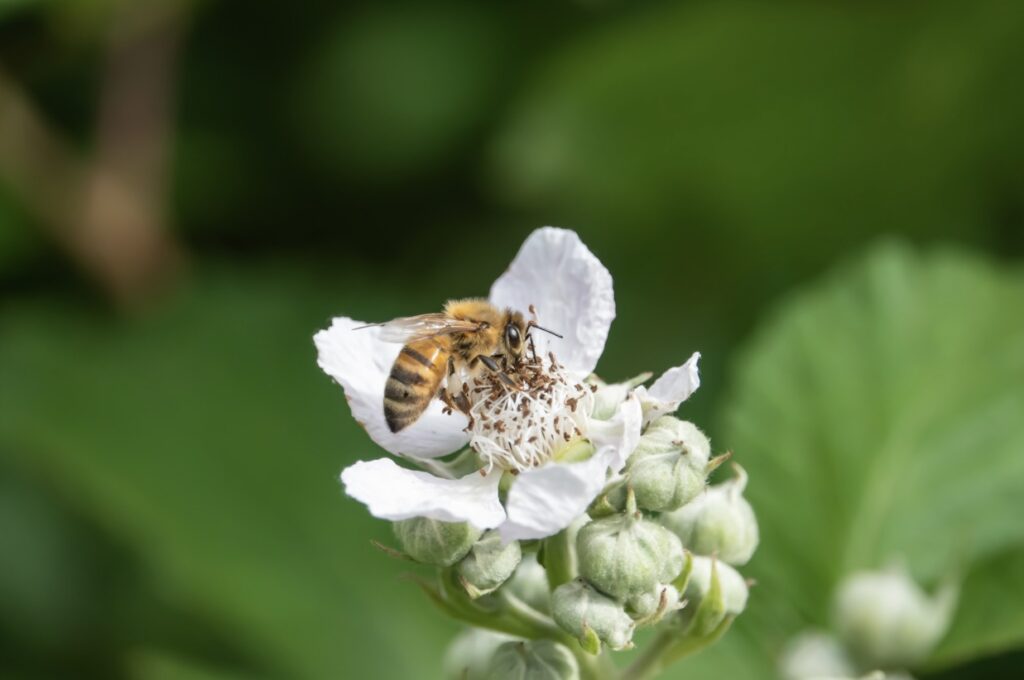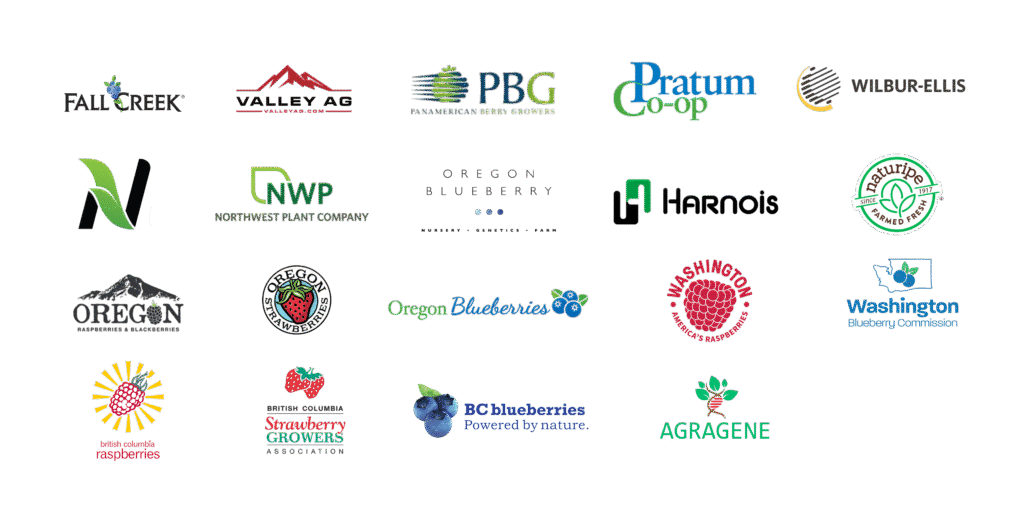We’re shifting gears to
caneberry pollination in the Pacific Northwest.
While caneberry pollination is
not usually a
concern as
blooms have plenty of
nectar and
pollen is
easily accessible making them more pollinator friendly, this
PolliNation podcast piece is worth some discussion. The featured speaker, Jim
Cane, is a recently retired native bee and
pollination ecologist who has spent
plentyof time in the Pacific Northwest doing field surveys and recalls seeing
caneberryfields with an overabundance of honeybees.

